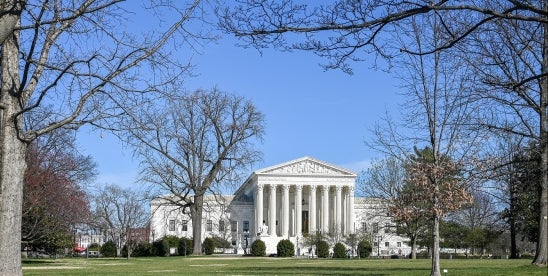The US Supreme Court has recently granted certiorari on the issue of whether a corporation can be held liable for the conduct of its affiliate without first satisfying the well-settled standards for piercing the corporate veil. While the case concerns the discretion afforded courts to fashion a remedy under the Lanham Act, the US Court of Appeals for the Fourth Circuit’s approach to veil-piercing could have broad implications. In particular, the Fourth Circuit held that the trademark-infringing defendant must disgorge not only its profits, but also those of its non-defendant affiliates.
If the Fourth Circuit’s decision is affirmed or extended by the Supreme Court, the ruling could create a new avenue for piercing the corporate veil, beyond the traditionally required showing that the affiliated entities have engaged in fraud or other similar wrongdoing.[1] The parties to the action, Dewberry Engineers, Inc. and Dewberry Group, Inc.
, are both in the real estate development business, and have a history of trademark litigation over the name “Dewberry.” The present dispute arose when the Dewberry Group designed new insignias using the “Dewberry” name as part of a corporate rebrand, and Dewberry Engineers sued for trademark infringement and contract violation in the district court in the US District Court for the Eastern District of Virginia.[2] The District Court sided with Dewberry Engineers, granting summary judgment and awarding more than $42 million in profit disgo.


















